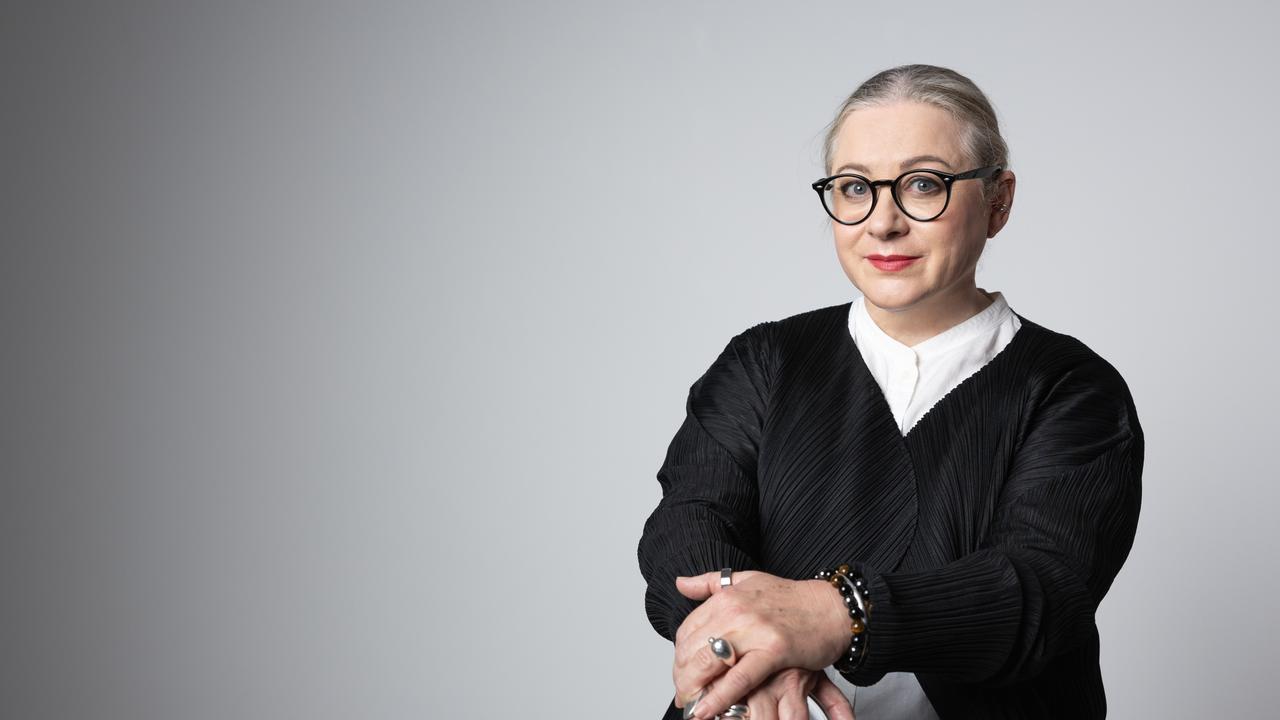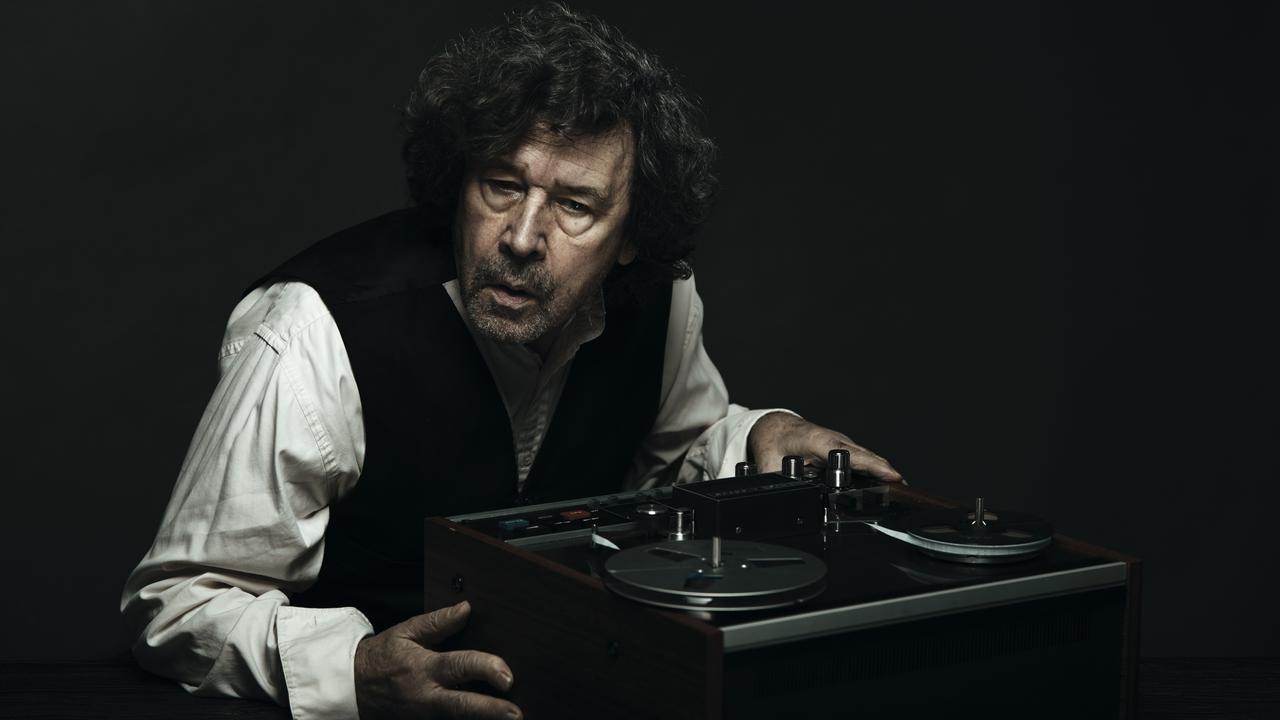Don’t Look up; a Boy Called Christmas; Alick and Albert
As opening scenes go, the one in Don’t Look Up is a ripper: there’s a 10km-wide comet heading directly for Earth.
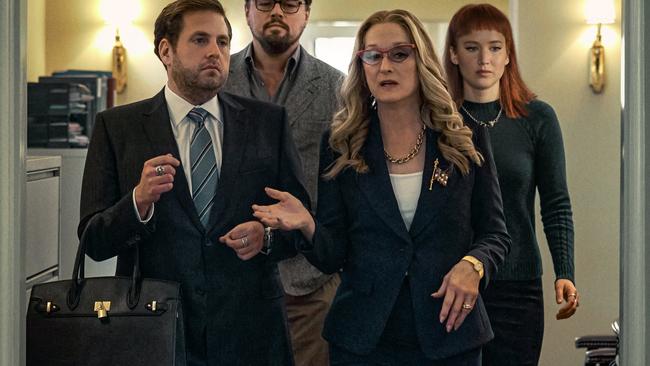
Don’t Look Up (M)
***1/2
In cinemas now
Netflix from December 24
‘What the f..k! Is this real or is this a goddamn joke?”
As opening scenes go, the one in Don’t Look Up is a ripper. That’s the nervous, anxious, pill-popping astronomer Randall Mindy (Leonardo DiCaprio), and what he’s asking about is a 10km-wide comet heading directly for Earth.
The near-Earth object was spotted by his smart, snappy, pill-popping PhD student, Kate Dibiasky (Jennifer Lawrence). She and her professor agree it will hit the planet in six months and 14 days.
It will have the power of “a billion Hiroshima bombs”, making it a “planet killer”. The latter phrase is used by Dr Clayton Oglethorpe (Rob Morgan), who heads NASA’s Planetary Defence Co-ordination Office.
So we have two Oscar winners, DiCaprio and Lawrence, as two out-of-their-orbit astronomers who believe the world is about to end. And that’s only the start of the Oscar haves and will-haves who appear in this satirical comedy-drama written and directed by Adam McKay (The Big Short, television series Succession).
The astronomers, backed by the NASA expert, are flown to the White House to talk to President Janie Orlean (played by a brilliant Meryl Streep).
The mid-terms are near and she is down in the polls because her latest Supreme Court nominee is a male nude life model with no law degree.
“Do you know how many ‘the world is ending’ meetings we have had over the years?” she tells them, lighting up a cigarette.
She seeks advice not from the scientists but from the alien-looking tech billionaire Peter Isherwell (an almost unrecognisable Mark Rylance), who is a blend of Elon Musk, Jeff Bezos, Mark Zuckerberg and Bill Gates.
The scientists decide to leak the story to the press and what follows can be seen as a riff on the debates over Covid-19 and climate change.
Don’t Look Up becomes the mantra of the vocal group that does not believe the comet is real. There’s soon a Don’t Look Up baseball cap. The Look Upians are accused of fomenting mass hysteria.
It is all very timely and very humorous. The impact of digital influencers is darkly funny because it’s true or close to it. The astronomer who looks like DiCaprio is tagged in social media posts as AILTF.
Cate Blanchett is brilliant as a TV talk show host who has three master’s degrees and speaks four languages but knows where her bread is buttered. “We keep the bad news light,” she advises Professor Mindy when he is squeezed on to the end of the program, after the main story on a pop star (real pop star Ariana Grande).
Timothee Chalamet, who is in everything at the moment, pops up as a young skateboard dude who has a serious side. Jonah Hill steals scenes as the president’s son and chief-of-staff.
With a cast like this it is hard to go wrong. DiCaprio is outstanding in the moments where the astronomer, who is regularly reminded he is only from Michigan State University, loses his cool and channels Howard Beale (the great Peter Finch) from the 1976 film Network.
When Donald Trump was elected president some said it was the death of satire, as it had been exceeded by reality. This 145-minute political-corporate-media parody shows that in the right hands satire still lives, at least until the comet hits.
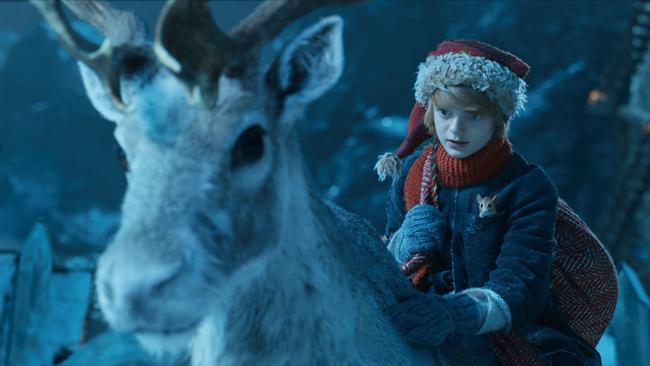
A Boy Called Christmas (PG) ***1/2
In cinemas
The English writer Matt Haig has a diverse output. I met him in his home town of Brighton in 2018 to talk about his book Notes on a Nervous Planet. In that book and others for adult readers he reflects, not without humour, on his struggles with depression and anxiety.
He has also written a dozen children’s books, including the one that is the basis of A Boy Called Christmas, a Santa Claus origin story that is an uplifting antidote to our downbeat times.
This 106-minute movie, directed and co-written by Gil Kenan, encapsulates what has become Haig’s main belief: that we should be kind to others.
It’s a graceful reminder that the best things in life truly are free and that we should meet everyone - with the possible exception of human-eating trolls - with open hearts and minds.
This movie is a story within a story. In the present day, three primary school age kids, their mother dead, their father called in to work on Christmas Eve, are looked after by an aunt (the wonderful Maggie Smith).
At bedtime she tells them a story from the past, from a time before Christmas existed, centred on another motherless boy. Nikolas (Henry Lawfull in his screen debut) lives in the forests of Finland with his woodcutter father (Michiel Huisman).
Times are tough so when the king (Jim Broadbent, having a ball) offers a reward to anyone who can find the legendary kingdom of Elfhelm, the woodcutter packs his axe and sets off to find some elves.
He is soon followed by his son and a talking mouse, which is a bonus for older viewers as the rodent is voiced by Stephen Merchant. This is humorous because a two-metre tall actor is playing a mouse, and because he’s just a funny bloke.
A reindeer, who does not talk, joins them. So we have a boy named Nikolas, who was nicknamed Christmas by his mother, a magical mouse and a reindeer trekking through the snow in a quest to find the home of elves. That we know the destination doesn’t make it any less of a jolly journey.
Lawfull, who is 15 and from London, is delightful as the boy who will become Father Christmas. He is superbly supported by older hands such as Smith (responsible for a wonderful reveal towards the end), Broadbent, Toby Jones (as an elf), Kirsten Wiig (as Nikolas’s mean aunt) and a scene stealing Sally Hawkins as the newly elected elfin chief who wants to make Elfhelm great again.
This is a big-hearted movie about kindness, which, as Nikolas reminds his dad, costs nothing but is worth so much.
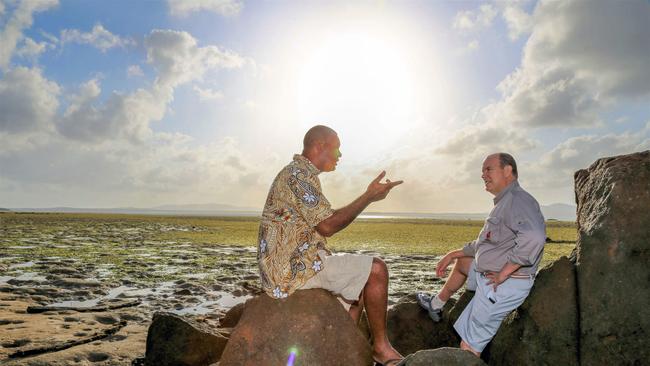
Alick and Albert (CTC) ***1/2
In cinemas
“The main thing is to make him fit in, to make him like one of us.” That’s the thinking of one of the locals on Badu Island, Queensland, ahead of a visit from someone from out of town.
The visitor is Prince Alert II of Monaco and that thinking is put into practice.
When he lands on the Torres Strait island he’s greeted by an elder wearing a North Queensland Cowboys rugby league cap. A feast in his honour includes local delicacies such as dugong, turtle and Queensland lager.
In one beautiful moment he is approached on the street by a group of kids. “Are you the prince?’’ one asks. “Yes I am,’’ he replies. High fives and an impromptu game of basketball follow.
The prince’s 2018 visit is recorded in the charming Australian documentary Alick and Albert, directed by indigenous film-maker Douglas Watkin.
Alick is the celebrated Badu Island artist Alick Tipoti. Two years earlier, his sculpture of a bronze dugong was included in an exhibition at Monaco’s Oceanographic Museum.
He was there, met the prince and invited him to visit Badu Island. To everyone’s surprise, he agreed. The artist and the prince share common passions: protecting the environment, especially the oceans, and preserving indigenous languages.
As well as the footage shot at the time of the visit, each man is interviewed about the experience and their ongoing environmental advocacy, now with the backing of marine scientists from Australia and Monaco.
It is fascinating to see the prince of a place with Prada stores on every corner spending days on an island without hotels or restaurants. He wears shorts, goes diving, drinks beer, bins plastic litter he finds on the beach and comes across as decent and down-to-earth.
There is a lovely moment when he meets a group of women who are lifelong fans of his mother Grace Kelly, the Hollywood star who became princess of Monaco.
He is touched by their comments. “It wasn’t just her beauty,’’ he tells them. “She was also beautiful inside.” That description applies to everyone we meet in this remarkable documentary.


